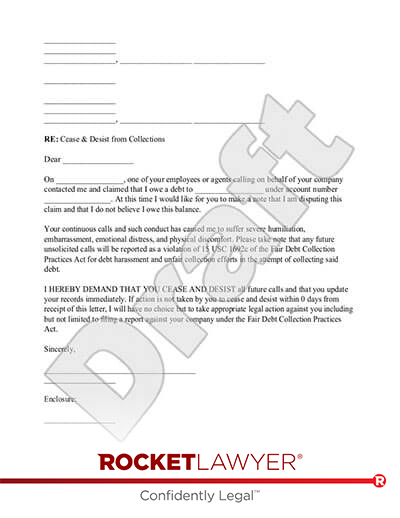What impact will the Speak Out Act have on my business?
NDAs and Non-Disparagement Agreements are common legal documents used in many different industries to protect employers and business owners from losses and liability. They are a type of contract you can use to safeguard your trade secrets. But, they may also be used for more general purposes—like when you want to protect a business’s reputation from being tarnished by a negative story. However, the Act only applies to pre-dispute provisions and does not stop parties from entering into an NDA after sexual harassment takes place. The legislation is not restricted to just employees and would also be applicable to all independent contractors, prospective employees, providers of goods and services, and customers.
According to section 4(a) of the Speak Out Act, limitations can be placed on the enforceability of clauses of Non-Disclosure and Non-Disparagement Agreements related to disputes of sexual harassment and assault. The Speak Out Act applies to all contracts, whether they were made before the Act was signed into law or after, as long as the claim of sexual harassment or assault is alleged under federal, state or tribal law on or after Dec. 7, 2022.
For most businesses, there should be little to no impact. For employers that do receive sexual harassment complaints from employees, however, legal costs related to those and future sexual harassment claims could increase. If this is a concern for your business, it may help to speak with a lawyer. You may want to review your current agreements, and to learn about best practices, moving forward, specifically for your business.
Do Non-Disclosure and Non-Disparagement Agreements have to be updated after a sexual harassment claim?
Possibly. The Speak Out Act tries to prevent non-disparagement and non-disclosure clauses relating to sexual harassment claims within an Employment Contract. The act advises removing such languages. If an Employment Contract is signed by an employee containing a non-disclosure clause and later that employee is subjected to sexual harassment in the workplace, the employer could not rely on this particular clause in court to prevent the employee from speaking out about the alleged behavior.
To ensure that the Non-Disclosure Agreement and Non-Disparagement Agreement provisions comply with the Speak Out Act, employers may want to review the content and word choice in their agreements. After a harassment claim is fully resolved, the Act does allow employers to ask all involved employees to sign a new NDA or Non-Disparagement Agreement that covers the resolved incident. Before doing so, however, speaking with a lawyer can be helpful to understand potential risks.
When can I ask an employee to sign an NDA that covers a sexual harassment claim?
After a claim is made or settled, the Act permits an NDA or Non-Disparagement Agreement to be signed. In the past, NDAs could prohibit victims from speaking out about alleged abuse before it ever happened. As a result, many victims have remained quiet out of fear of violating their agreements. The Act encourages victims to speak out which, in turn, can encourage companies to act quickly to resolve harassment claims.
How can I encourage employees to not go public with alleged sexual harassment claims?
The best way to limit employee posts on social media or other public platforms about alleged sexual harassment is to build a strong reputation as an employer that will not tolerate sexual harassment. This requires implementing and enforcing appropriate policies, mandatory training, addressing all allegations in a serious manner and taking corrective action after a complaint is investigated and resolved. If an employee does speak out, it may not reflect poorly on an employer if the story being told includes that employer doing the right thing.
When employees are confident that their employer can remedy the problem and discipline the offending employee(s), there is a much lower likelihood that a public #MeToo moment or PR disaster may arise.
How can businesses reduce legal liabilities and stay compliant with the new federal law?
The Speak Out Act may not require many changes, but it may also present a good opportunity for businesses to review their policies and Employee Handbooks. A Harassment Policy, for example, clearly defines what actions or words are considered harassment and also spells out potential consequences that may occur if there is an incident, and how to report an incident. Additionally, a harassment-free, safe workplace is a right of all employees, and therefore, updating policies, and your Employee Handbook, regularly is critical for both business owners and employees.
With an effective, clear and legally enforceable Harassment Policy, you can set standards and define expectations for your business. Implementing and enforcing this policy also adds a layer of litigation protection for your organization. Taking appropriate corrective action immediately when harassment complaints are received can protect a business against potential liability.
Why are Employee Handbooks important for employers?
Employee handbooks outline company rules and expectations, and may include any required legal notices. Importantly, your Employee Handbook can explain how employees can report issues, like harassment, internally. A handbook benefits both employers and employees, as a worker may first look at their handbook if they see or suffer harassment to find out what to do. This not only gives the worker clear instructions on how to handle the situation, but also provides employers with the opportunity to take action to resolve it.
Employee Handbooks are commonly shared with new employees during onboarding, and with existing employees annually or after an update or incident.
If you have more questions about updating your policies or agreements, reach out to a Rocket Lawyer network attorney for affordable legal advice.
Please note: This page offers general legal information, not but not legal advice tailored for your specific legal situation. Rocket Lawyer Incorporated isn't a law firm or a substitute for one. For further information on this topic, you can Ask a Legal Pro.
